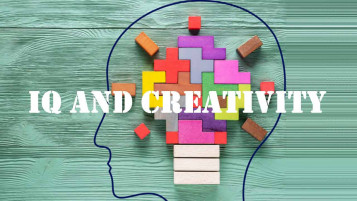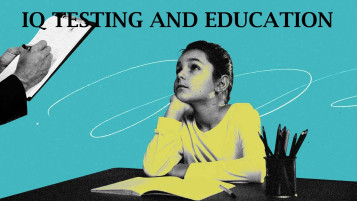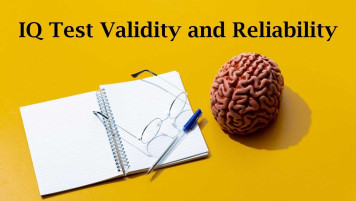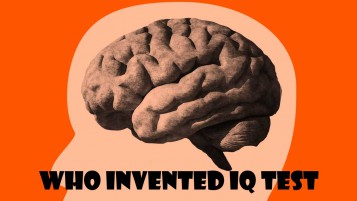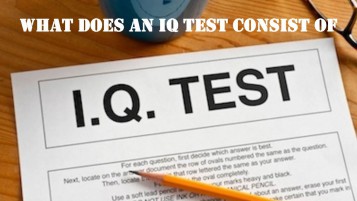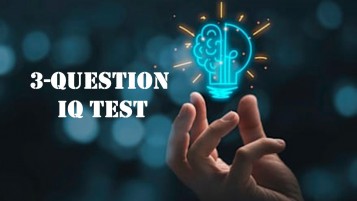IQ isn’t just a score on a psychological test anymore it’s a pop-culture character type, a meme, and a marketing hook. From blockbuster films to viral “3-question IQ tests,” popular media has turned intelligence into a personality brand. That visibility has helped people talk about cognitive ability, but it has also amplified myths about what IQ is. This guide unpacks how IQ shows up across pop culture, why those portrayals stick, and how they affect the way we see intelligence, success, and ourselves.
From biopics to TV procedurals and viral “IQ quizzes,” popular culture treats IQ as a magic number that unlocks genius, success, and social quirks. In science, though, IQ is a score from standardized, age-normed tests that must be developed, administered, and interpreted under strict professional standards. Without that context, media depictions easily drift into myth or misuse (AERA, APA, & NCME, 2014).
IQ tests are designed to be reliable (consistent) and valid (actually measuring intended constructs) across carefully sampled populations. Headlines that cite a single number without naming the test, year of norms, standard error of measurement, or who administered it are not scientifically informative. Responsible interpretation follows the Standards for Educational and Psychological Testing; quick online quizzes and self-reports do not (AERA, APA, & NCME, 2014; Benson, 2003)
Below are top 20 pop-culture figures associated with high intelligence
|
# |
Name |
Field / Why Famous |
Why they’re here (verifiable achievements) |
IQ score status |
|
1 |
Marilyn vos Savant |
Writer/Columnist |
Famous “Ask Marilyn” column; long associated with highest IQ records |
Reported very high IQ; tests not publicly standardized |
|
2 |
Mayim Bialik |
Actor/Host |
PhD in Neuroscience (UCLA); plays a scientist on TV |
Scores sometimes reported; unverified |
|
3 |
Brian May |
Musician (Queen) |
PhD in Astrophysics; research publications |
No public score; achievement-based |
|
4 |
Hedy Lamarr |
Actor/Inventor |
Co-invented spread-spectrum tech foundational to Wi-Fi/Bluetooth |
No public score; achievement-based |
|
5 |
Natalie Portman |
Actor |
Harvard BA (Psychology); co-authored research |
Scores sometimes reported; unverified |
|
6 |
Ken Jeong |
Actor/Comedian |
MD (physician) before entertainment career |
No public score; achievement-based |
|
7 |
Conan O’Brien |
Host/Writer |
Harvard graduate; long-time late-night writer/host |
Scores rumored; unverified |
|
8 |
Rowan Atkinson |
Actor/Comedian |
MEng (Oxford); electrical engineering background |
Scores rumored; unverified |
|
9 |
John Carmack |
Game Dev/Engineer |
Co-founded id Software; pioneering 3D graphics; ex-CTO Oculus |
No public score; achievement-based |
|
10 |
Jodie Foster |
Actor/Director |
Yale graduate; speaks multiple languages; Oscar winner |
Scores rumored; unverified |
|
11 |
Emma Watson |
Actor |
Brown University graduate; UN Women goodwill ambassador |
Scores rumored; unverified |
|
12 |
Lisa Kudrow |
Actor |
BSc Biology (Vassar); assisted in headache research |
Scores rumored; unverified |
|
13 |
Ashton Kutcher |
Actor/Investor |
Early tech investor (Airbnb, Spotify, etc.) |
Scores widely reported; unverified |
|
14 |
Matt Damon |
Actor/Writer |
Co-wrote Good Will Hunting; studied at Harvard |
Scores widely reported; unverified |
|
15 |
Quentin Tarantino |
Director |
Acclaimed writer-director known for complex narratives |
Scores widely reported; unverified |
|
16 |
Shakira |
Musician |
Polyglot; notable for philanthropy in education; MENSA rumors circulate |
Scores rumored; unverified |
|
17 |
Nolan Gould |
Actor (Modern Family) |
Publicly stated MENSA membership when younger |
Score claims reported; membership claims public |
|
18 |
Elon Musk |
Entrepreneur |
Leads multiple tech companies; engineering-heavy products |
No public score; achievement-based |
|
19 |
Stephen Hawking |
Physicist/Author |
Landmark work on black holes; bestselling A Brief History of Time |
“IQ” rarely cited; achievement-based |
|
20 |
Terence Tao |
Mathematician |
Fields Medal; often profiled in media as a modern “genius” |
Numbers reported; real stature = peer-reviewed work |
Screen storytelling needs fast visual cues. “High IQ” instantly communicates reasoning speed, pattern detection, and memory – abilities formal IQ tests sample (Neisser et al., 1996). That’s why we see:
The tortured genius. Brilliant, solitary, emotionally awkward. It’s dramatic, but it overstates a trade-off between cognitive skill and social skill. In the workplace, emotional intelligence and cognitive ability often combine to predict performance (Côté & Miners, 2006).
The instant solver. Whiteboard equations and five-minute breakthroughs compress years of practice into a montage. In reality, education matters: meta-analytic evidence links additional years of schooling to small but reliable IQ gains (about 1–5 points on average) (Ritchie & Tucker-Drob, 2018).
The detective savant. Preternatural pattern recognition makes for great procedurals. Cognitively, that maps to reasoning, working memory, and processing speed but real experts also lean on domain knowledge and team workflows.
The smart-pill fantasy. “Unlock 100% of your brain” is a myth. Neuroimaging ties higher IQ to more efficient parietal-frontal integration and stronger working-memory networks not to unused brain regions waiting for a magic key (Jung & Haier, 2007).
How high is Snoop Dogg’s IQ?
There’s no publicly verified standardized score. Widely shared figures are reported without professional documentation. Formal IQ requires trained administration and age-normed scoring under published standards (AERA, APA, & NCME, 2014).
Is Taylor Swift’s IQ really 160?
No verified record from a standardized assessment exists. Viral numbers are unconfirmed; prioritize verifiable achievements over rumored scores (AERA, APA, & NCME, 2014).
Why are engineers and physicists seen as “high IQ” in pop culture?
The stereotype comes from visible problem-solving and math-heavy work. Real-world ability reflects education, domain practice, and cognitive skills like reasoning and working memory, not just a single number (Jung & Haier, 2007; Ritchie & Tucker-Drob, 2018).
Pop culture makes IQ entertaining – celebrity lists, TV geniuses, viral quizzes – but it often blurs science. Most public “IQ scores” are reported, not verified, and a single number can’t capture creativity, EQ, or real-world skill. Treat headlines critically and prioritize standardized testing, documented achievements, and the broader habits that drive success: learning, problem-solving, collaboration. Enjoy the stories—just pair them with the science to see what “genius” really means.
Reference:
